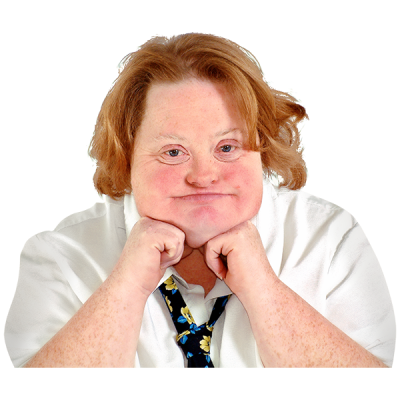About this guide

A member of staff or a carer can support you to read this guide. They will be able to answer any questions that you have.
About this guide
- This guide is for people who want to know more about alcohol and how it effects you.
- It will tell you about different types of drinking and help you decide what type of drinker you are.
- It will tell you where you can go to get help if you are drinking too much alcohol.
What is alcohol?

Alcohol is a chemical made from sugar.
There are lots of different types of alcohol, like beer, wine, cider, whisky and vodka.

Each drink has a different amount of alcohol in it. The alcohol is measured in units. The can or bottle of alcohol you drink from will tell you how many units are in it.

Alcohol also has calories in it. This means you can put on weight if you drink too much.
What does alcohol do?

Alcohol goes into your blood and affects what you do and how you see things.
- You might do things you would not do if you were not drunk.
- You might not remember things you have done.

- Your vision might go blurry.
- You might get dizzy or sick.
- You might pass out.
Your body thinks alcohol is a poison and tries to get rid of it. The more alcohol you drink the longer it will take your body to get rid of it.
Getting fresh air, drinking coffee or having a cold shower will not help your body to get rid of alcohol.

You should never drive if you have had alcohol as it slows down how your body works. You do things slower and it is harder to judge things if you have drunk alcohol.
Alcohol stays in a woman’s body longer than a man’s, so women should drink less alcohol than men.
Your body when you drink too much alcohol

Here are some of the things which can happen:
You might not remember things

You could get violent, angry or depressed

You can get different kinds of cancer

You can get stomach pains, sickness and diarrhoea

Men can find it difficult to have sex

You can damage your liver

Pregnant women can harm their baby
What kind of drinker am I?

Think about how much alcohol you drink in a week. Keeping a diary might help you to do this.
You should try to remember where you were, what you were doing, who you were with and what you had to drink.
You can use this information to see how much you are drinking and when.

If you think you are drinking lots or are worried about how much you drink you should see your doctor or nurse who can help you.
Why do I drink?

You could draw a picture or make a list of the reasons you drink.
Is it because:
- Your friends drink.
- It helps you relax.
- It helps you sleep.
- It makes you feel better when you are out.
- You are bored.
- You get nervous if you don’t drink.
- You feel depressed or low.
- You like the feeling of being drunk.
- It helps you forget your problems.

Now think about all the reasons it would be a good idea to stop drinking alcohol or to drink less alcohol. Things like:
- Saving money.
- Losing weight.
- Better sleep.
- Healthier.
- Getting on better with family and friends.
This might help you to make a decision about whether you want to stop drinking all together or just cut down.
How can I control my drinking?

The way you drink alcohol is a habit, like smoking or taking drugs. It is important to try and break this habit.
You could use a diary to plan the best way to stop or cut down your drinking.
- Use a diary to plan when you will have a drink and how much you will have.

- Make a note about when it will be hard for you not to drink – like on Friday or Saturday nights.
- Pick a couple of days when you won’t drink any alcohol.
- When you do drink, plan what you will drink and how much.

- Keep a diary of what you drink and when.
- Make sure you plan to have some food before you have a drink.

You could cut down how much you drink by making some small changes.
- If you are going out to drink – don’t have a drink in the house first.
- Eat food before you drink – if you are full, you will probably drink less.
- Have a mixer with your drink, like gin and tonic or vodka and orange. Or have smaller drinks, like a small glass of wine.

Look for other things to do instead of drinking. You could:
- Go to the cinema or do some exercise.
- Try drinks with no alcohol in them – you might find one that you like.
- If you do drink alcohol, try to drink something with no alcohol in it after each alcoholic drink, like tea, coffee, fruit juice or a soft drink.
Will I have problems if I stop drinking?

Most people will have a few problems when they decide to stop drinking. Here are some of the problems you might come across:
If you feel nervous – try relaxing or do some gentle exercise. Take some slow, deep breaths. Take up a hobby.

If you can’t sleep – remember to exercise, but not late at night. Make sure your bed and bedroom are comfortable.

If you are bored – plan your day so that you have things to do.
Save the money from not buying alcohol to treat yourself.

If you don’t feel part of the crowd when you are out with friends – try not to think about yourself. Instead, think about people you are with – ask how they are and listen to their answers, take notice of what is going on around you. People won’t stop liking you because you have given up drinking.

If you are a person who drinks lots of alcohol every day, you must see your doctor or nurse before you decide to give up drinking. They will help you plan to give up and make sure that you are happy, healthy and fit.
Remember, it might not be easy to give up drinking alcohol and it might take a while for you to totally stop drinking. Talk to your doctor or nurse if you need any help.
Where to get more help

If you would like to get more help or information, you can get in touch with these people:
Alcoholics Anonymous
Information, advice and help for people recovering from alcoholism.
Telephone: 0800 9177 650
Email: help
www.
Down Your Drink
Website to help you work out how much you are drinking and what you can do to stop.
www.

You can also get help and information from your doctor or nurse.
Acknowledgement

Easy Read version developed by:
- Skills for People, Telephone: 0191 281 8737
Skills for People is a registered charity no. 1069993 - Many thanks to service users and healthcare staff who have contributed to the development of this guide.
Adapted from Alcohol and You - A Self Help Guide written by healthcare staff Northumberland, Tyne and Wear NHS Foundation Trust www.
Published by the Patient Information Centre
2025 Copyright, Cumbria, Northumberland, Tyne and Wear NHS Foundation Trust
Ref, PIC/725/0525 May 2025 V4
Review date 2028
 Print or download as a PDF
Print or download as a PDF